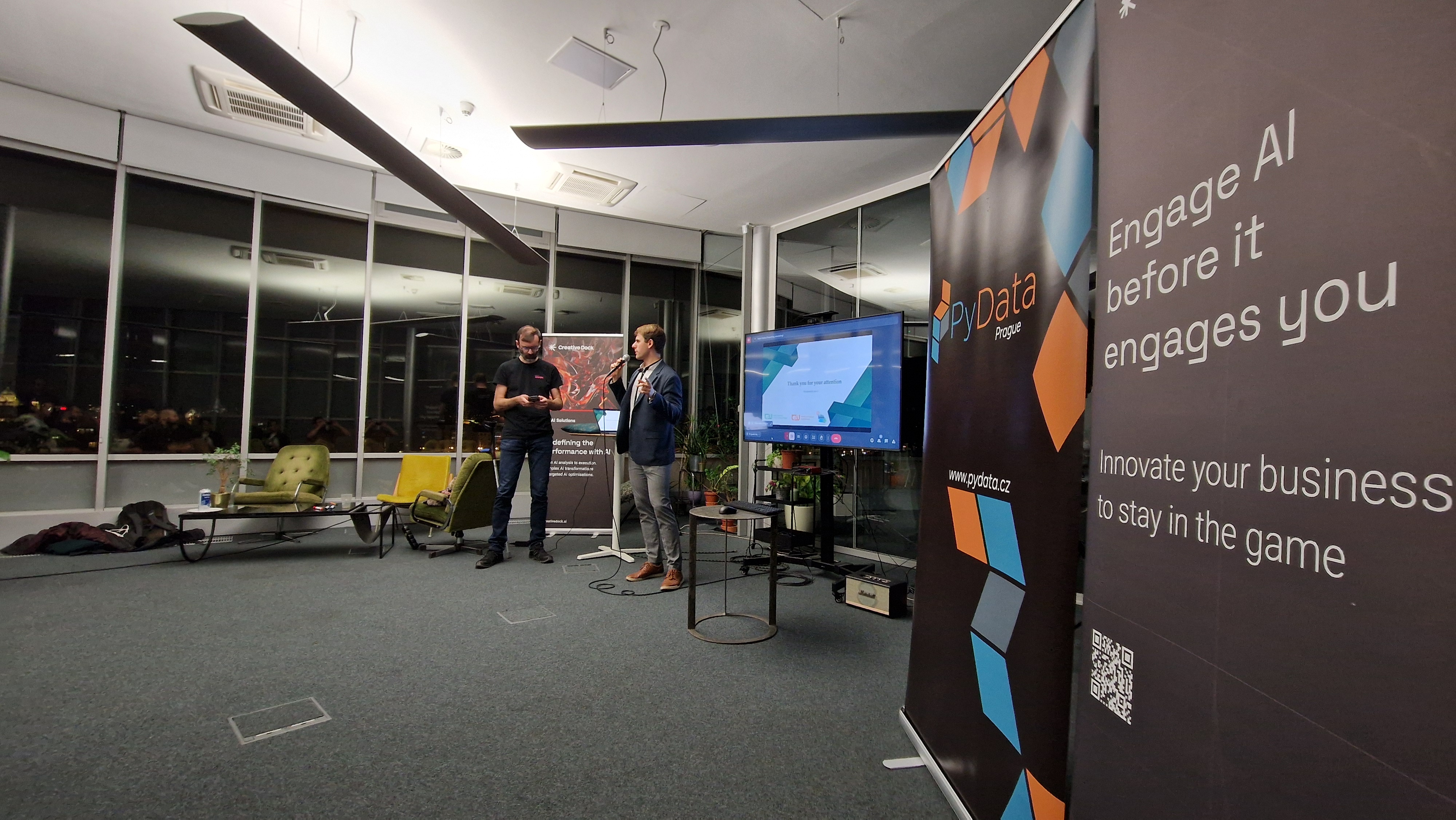At BRT, we’re passionate about driving sustainable innovation in agriculture through cutting-edge technologies. Recently, BRT junior researcher and PhD student Adam Hruška had the opportunity to speak at an event centered on the power of AI in promoting sustainable practices and advancing modern agriculture. Here are his first account insights!
I had the privilege of presenting my research at the 24th PyData Prague Meetup, an inspiring event that brought together data enthusiasts, developers, and all python professionals. My talk focused on an exciting application of neural networks for weed detection in precision agriculture, a critical step toward modernizing one of humanity’s oldest and most vital professions.
The presentation explored how machine learning, particularly Python-based tools, is revolutionizing agriculture. Python's powerful libraries such as OpenCV, scikit-image, and TensorFlow enable researchers like me efficient data handling, image processing, and model training. These tools are paving the way for AI-driven systems that can accurately distinguish between crops and weeds, contributing to better yields, savings on pesticide use and more sustainable farming practices.
Key Takeaways and Highlights
- The Promise of AI in Agriculture: Neural networks and machine learning models can analyze vast datasets, identify weed species with high precision, and offer actionable insights to farmers.
- Challenges and Limitations: Despite their potential, these technologies face hurdles such as data quality, reliance on manual annotation, and the computational costs of large-scale deployment.
- Collaboration is Key: Beyond the technology, the success of AI in agriculture depends on collaboration between data scientists, developers, and industry professionals. It's about transforming theoretical models into practical, scalable solutions.
A highlight of my talk was encouraging participants to think beyond the technical aspects and consider the bigger picture regarding how can we turn these tools into real-world solutions? From startups to experimentation, there’s immense potential for innovation in the field.
The audience’s questions and insights were incredibly enriching. Many attendees shared ideas for implementing these technologies into different contexts both within and outside of agriculture, highlighting the collaborative spirit of the meetup. It was a reminder that advancing sustainable farming requires both cutting-edge tools and a community of dedicated innovators.
Modern agriculture is at the intersection of tradition and innovation, and AI is certainly playing a pivotal role in shaping its future. By leveraging Python-driven frameworks and fostering interdisciplinary collaboration, we can address pressing agricultural challenges while promoting sustainability. I’m grateful to the PyData Prague organizers for hosting such a fantastic event and to everyone who engaged with my presentation.
Photo credit: organizers – PydataPrague
For more details on BRT activities, subscribe to our newsletter or follow us on social media for regular updates and highlights.


